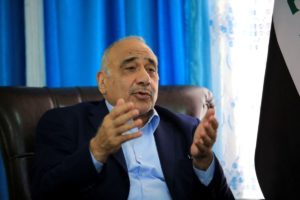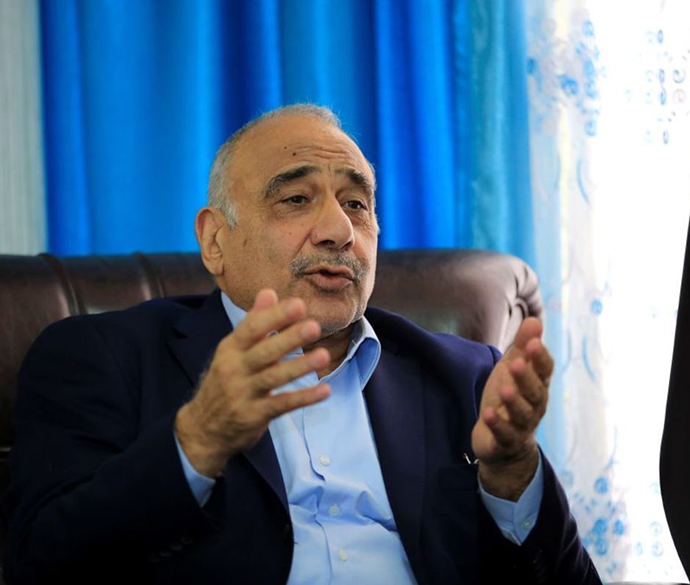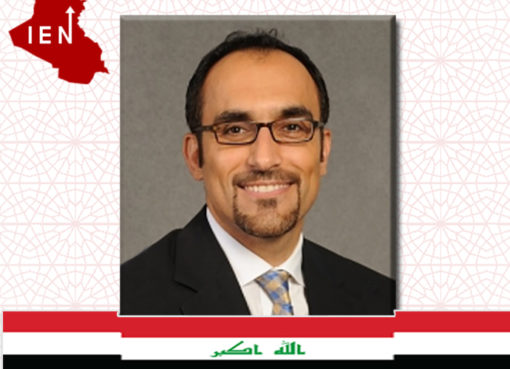
Adel Abdul Mahdi showed himself to be a good analyst of the country’s problems. But his cabinet choices show he may not have the solutions.
In an essay he wrote on his Facebook page five months ago, Adel Abdul Mahdi said he wouldn’t want to be Iraq’s next prime minister. The country’s toxic political culture would make it impossible to govern, he claimed. “Assuming I got accepted now, I will soon lose,” he wrote. “I will face majorities which will not allow their groups to provide necessary support.”
Now that Abdul Mahdi is prime minister, he’s discovering just how right he was. The question is whether he will seek to do anything about it.
On Thursday, after weeks of bickering, parliament finally confirmed Abdul Mahdi, and 14 of the 22 people he named to his cabinet. There was no vote on a number of key appointments, including ministers of defense and the interior. Nearly a third of the 329 members of parliament didn’t even bother to turn up, and those who did complained they weren’t given enough time to properly consider the nominations. Abdul Mahdi didn’t help matters by handing out one-sheet resumes of each of his nominees.
It was an inauspicious start to his premiership, but the messy process of cabinet formation was entirely consistent with his May prophesy. The political groups he warned about — a half-dozen factions whose backing he needed for his confirmation — jockeyed ferociously for control of key ministries, leaving Abdul Mahdi unable to deliver on his promise of a cabinet of “technocrats.” His picks to run the oil and electricity ministries may fit that description, but in other positions it seems clear that Abdul Mahdi’s choices were forced on him. None of the nominations came from an online application process he announced earlier this month, designed to attract fresh talent to government. Worryingly, his nominee for the powerful interior ministry is Falih al-Fayadh, who ran the Iran-backed militias known as Popular Mobilization Forces militias. (The vote on his nomination, and at least some of the others, is expected on Nov. 6.)
The difficulty Abdul Mahdi has already had with the cabinet-formation process bodes ill for the other challenges that lie ahead. Among those he prophesied in the May essay: resistance by political parties to the institutionalization of government departments, to ending rentierism in the economy, to the separation of powers between the legislative and the executive, to the dismantling of politically affiliated militias, and to transparency in security agreements with other nations, including Iran.
Those would be formidable challenges for any government; they seem insurmountable for one where the ministers are all, like Abdul Mahdi himself, political lightweights, lacking both mass appeal and parliamentary clout. This allows little optimism for reform at the ministerial level, where bureaucracies have long been packed with political appointees who answer to parties rather than to the state. The tradition of parties interfering in the day-to-day functioning of ministries is unlikely to change. As Abdul Madhi wrote in May, “There are large numbers of people who are used to considering this interference a right and not an [encroachment].” It is hard to imagine any of the new ministers cleaning house.
Problem is, while Abdul Mahdi showed himself an astute analyst of the country’s problems, his own track record is uninspiring. As oil minister from 2014-16, he did little to curb the influence of apparatchiks from his own party, the Islamic Supreme Council of Iraq, who “treated it as their fiefdom, like any party would and did in any ministry,” says Ruba Husari, managing director of OZME Consultants, which provides consulting on Iraq’s oil and gas sector. Abdul Mahdi proved to be a poor administrator. “He was not a manager, not someone who had any sense of the details of his ministry,” says Toby Dodge, an expert on Iraq at the London School of Economic’s Middle East Center.
Sometimes being a compromise candidate can be an asset. Abdul Mahdi may be weak, but at least he now has a bully pulpit and a job that, in theory, few others want. Given his grasp of Iraq’s problems, it’s tempting to conclude he’s not trying very hard to tackle them. Maybe, despite his protests, he wanted the job a little too much.
Source: Bloomberg, October 28, 2018








Comment here